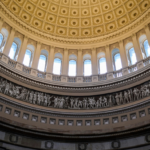Case Law and Legislative Changes: What Lawyers Need to Know

Case Law and Legislative Changes: What Lawyers Need to Know
Estimated reading time: 9 minutes
California’s legal landscape is constantly evolving, with case law and legislative updates impacting a wide range of practice areas, from family law to consumer protection and beyond. For attorneys, staying current with these changes is crucial to providing effective representation and ensuring compliance with the latest rules and precedents. New court rulings often redefine established legal principles, while legislative shifts can introduce new standards or obligations. Below are several recent significant case law and legislative changes.
Criminal Law
People v. Robinson
The California Court of Appeal reversed a trial court’s decision that allowed the defendant, Jacqueline Robinson, to enter a guilty plea with a tentative dismissal if she completed 52 weeks of parenting classes. Robinson was charged with two counts of misdemeanor child endangerment under Penal Code section 273a. The prosecution objected to the sentencing plan, arguing that it violated Penal Code section 1449 and unlawfully created a diversion plan. The court found that section 1449’s time limits on sentencing are directory, not mandatory, but ruled that existing case law, particularly People v. Municipal Court (Gelardi), prohibited conditional dismissals based on future behavior.
The appellate court held that the trial court’s actions exceeded its jurisdiction by granting what amounted to a deferred entry of judgment without statutory authority. It reversed the ruling, stating that the defendant had entered her plea with an expectation that was legally impermissible, thus allowing her to withdraw her guilty plea.
Education
Assembly Bill 3216: The Phone-Free School Act
Assembly Bill 3216, the Phone-Free School Act, was signed into law on September 23, requiring all California school districts, charter schools, and county education offices to establish policies limiting or banning smartphone use by July 2026. The bill, authored by a bipartisan group of legislators, aims to improve students’ mental health, academic performance, and social development. Citing concerns over excessive phone use leading to anxiety, depression, and lower academic scores, Newsom emphasized the importance of allowing students to focus on learning and social interactions without distractions.
The legislation builds on 2019’s AB 272, which gave schools the authority to regulate phone use during school hours. AB 3216 is a more robust measure in response to growing research, including a Pew survey, showing the negative impact of phones in schools. The bill also allows phone use during emergencies, addressing concerns from parents and communities.
While the bill has widespread support from teachers and school districts like Los Angeles Unified, some districts expressed concerns over local control. The California School Boards Association argued the law imposes unnecessary regulations on local boards. Despite the debate, the new law is seen as a significant step toward addressing student well-being and mitigating the effects of smartphone use in schools.
Environmental Protections
Assembly Bill 3233, Assembly Bill 1866, Assembly Bill 2716
On September 25, Governor Gavin Newsom signed three bills aimed at reducing oil drilling-related pollution and empowering California communities to regulate oil and gas activities. The legislation prioritizes public health and environmental protection by enabling local governments to restrict or prohibit new oil developments. Assembly Bill 3233, authored by Assemblymember Dawn Addis, allows city and county governments to impose such limits, overriding court rulings that blocked similar ordinances in Monterey County and Los Angeles. Addis called it a win for cleaner air and water across the state.
Assembly Bill 1866, introduced by Assemblymember Gregg Hart, addresses the problem of idle oil wells that pose environmental risks. The bill increases fees and strengthens regulations to ensure oil companies properly plug these wells to prevent leaks and contamination.
Lastly, Assembly Bill 2716, authored by Assemblymember Isaac Bryan, targets low-producing wells in the Baldwin Hills Conservancy. The bill imposes fines on these wells until they are permanently decommissioned, with penalty funds supporting local projects like park development. Bryan highlighted the bill as a victory for communities long affected by the health impacts of oil drilling in urban areas. Together, the laws aim to protect communities and hold the oil industry accountable for its environmental impacts.

Make UC a Good Neighbor v. The Regents of the University of California
Plaintiffs, representing community groups, challenged UC Berkeley’s approval of a housing project at People’s Park and the related Long Range Development Plan (LRDP) under the California Environmental Quality Act (CEQA). The plaintiffs argued that the Environmental Impact Report (EIR) failed to adequately analyze the noise impact of student parties and did not consider alternative locations for the housing project. Initially, the Court of Appeal agreed with the plaintiffs, ruling that the EIR was inadequate on these grounds.
However, the case took a significant turn when the California Legislature passed Assembly Bill 1307 during the Supreme Court’s review. The new law amended CEQA to state that noise from residential projects, such as student housing, is not considered a significant environmental impact and exempted public universities from having to consider alternative sites for such projects if specific conditions were met.
The Supreme Court concluded that the new law applied retroactively to the case, reversing the Court of Appeal’s decision. The court held that the noise concerns were no longer relevant under the revised CEQA provisions, and UC Berkeley was not required to evaluate alternative locations for the housing project. The ruling effectively allows UC Berkeley to move forward with its planned developments at People’s Park without further legal obstacles.
False Claims Act
Stein v. Kaiser Foundation Health Plan, Inc.
The Ninth Circuit Court of Appeals revisited a False Claims Act (FCA) case involving plaintiffs Marcia Stein and Rodolfo Bone, who alleged Medicare fraud against Kaiser-related entities. The district court had previously dismissed the case, citing the FCA’s “first-to-file” rule, which prevents additional lawsuits if a related action is already pending. Initially, the Ninth Circuit upheld the dismissal, following precedent that deemed the first-to-file rule as jurisdictional. However, the case was reconsidered en banc, where the court overruled its prior decisions (Hartpence and Hughes) and determined that the first-to-file rule is not jurisdictional.
The court emphasized that the FCA’s first-to-file rule does not use the term “jurisdiction” nor contains any textual indication that it should be treated as such. The decision aligns with recent Supreme Court rulings that mandate a “clear statement” from Congress before a statutory provision is deemed jurisdictional. Consequently, the court concluded that the first-to-file rule limits who can bring a case but does not bar courts from hearing them based on earlier filings.
The ruling brings the Ninth Circuit in line with other circuits, correcting its previous stance. The case was remanded to a three-judge panel for further proceedings, allowing the lawsuit against Kaiser to move forward.
Housing and Real Estate
Governor Gavin Newsom signed a bipartisan legislative package aimed at addressing California’s housing and homelessness crisis. The new laws strengthen local accountability in housing production, streamline approval processes for new developments, and impose penalties on cities that fail to meet state housing requirements. Notably, Assembly Bill 2243 expands areas where developers can seek streamlined housing approvals, including regional malls and land near freeways. AB 3093 requires local governments to create detailed housing plans, while Senate Bill 1037 enforces penalties of up to $50,000 per month for communities unlawfully rejecting housing projects.
Additionally, Newsom announced a new housing program funded by Proposition 1, offering up to $2.2 billion for the Homekey+ initiative, which will build over 4,000 permanent supportive housing units for veterans and individuals facing homelessness, with half of these units reserved for veterans with behavioral health needs. The Homekey+ program will focus on quickly converting existing buildings into affordable housing, with applications for funding opening in November and distribution beginning in May 2025.
The legislation is part of California’s broader efforts to combat homelessness and housing shortages, reinforcing accountability and providing resources to tackle the decades-long crisis affecting vulnerable populations across the state.
Labor & Employment
Castellanos v. State
In Castellanos v. State of California, the Supreme Court of California addressed the constitutionality of Proposition 22, which classifies app-based drivers as independent contractors rather than employees, exempting them from traditional labor protections, including workers’ compensation. The plaintiffs argued that Proposition 22 conflicts with Article XIV, Section 4 of the California Constitution, which grants the Legislature plenary power to create a complete workers’ compensation system. They claimed that Proposition 22 unconstitutionally limits this legislative power.
The trial court initially ruled Proposition 22 unconstitutional, holding that it improperly constrained the Legislature’s ability to modify or expand workers’ compensation laws. However, the Court of Appeal reversed this decision, concluding that the Legislature and voters, through the initiative process, share the power to legislate on workers’ compensation matters. The appellate court reasoned that Article XIV does not grant the Legislature exclusive authority and that the electorate, via initiatives like Proposition 22, can enact laws affecting workers’ compensation.
The Supreme Court upheld the appellate court’s ruling, confirming that Proposition 22 does not violate the California Constitution and allowing app-based drivers to continue operating as independent contractors under the terms of the proposition.
Let Continuing Education of the Bar (CEB) Guide Your Practice
CEB offers comprehensive resources and updates that allow lawyers to stay informed about recent precedents and shifts in the legal landscape. CEB ensures that attorneys can maintain a thorough understanding of current legal standards and changes with its many online resources:
CEB Practitioner:
CEB’s Practitioner Tool offers a vast array of case law, statutes, and practical guides across various legal fields. This tool streamlines research, enhances legal practice efficiency, and provides up-to-date information, making it invaluable for lawyers seeking quick and reliable legal insights. All Practitioner resources are written by California lawyers, for California lawyers.
OnLAW Pro:
CEB’s all-in-one legal research solution with authoritative practice guides, OnLAW Pro is written by California lawyers for California lawyers. All practice guides are fully integrated with CEB’s primary law research tool, allowing you to research California, Ninth Circuit Court of Appeals, and U.S. Supreme Court case law, as well as California statutes and the California Constitution. OnLAW also comes with TrueCite®, CEB’s powerful case law citator.
MCLE Solutions:
CEB’s MCLE solutions, including CLE Passport and CEB’s CLE Compliance Package, provide a robust platform for California lawyers seeking to fulfill their CLE requirements. These solutions offer a diverse range of courses, covering various legal topics and practice areas. Designed for convenience and flexibility, the programs are available online, allowing attorneys to access high-quality, accredited educational content anytime, anywhere. CEB’s MCLE Solutions are an ideal blend of practicality and expertise, ensuring legal professionals stay informed, compliant, and at the forefront of their field.
Maximize the effectiveness of your legal practice by integrating CEB’s innovative tools into your work. Visit our website to explore these resources and begin transforming your approach to legal challenges. Stay informed and stay ahead with CEB.
Read more related content
- California’s Proposed Antitrust Crackdown: SB 763 Penalties Could Jump from $1 Million to $100 MillionCalifornia’s Proposed Antitrust Crackdown: SB 763 Penalties Could Jump from $1 Million to $100 Million A $1 million penalty for California corporations found guilty of criminal antitrust charges could soon … Continued
- California Wildfire Legal Response: Executive Orders, CEQA Exemptions, and Rebuilding GuidelinesCalifornia Wildfire Legal Response: Executive Orders, CEQA Exemptions, and Rebuilding Guidelines The Los Angeles and Ventura County wildfires are, first and foremost, a human tragedy, displacing families, devastating communities and … Continued
- Navigating the Litigation Process in California: A Practitioner’s Handbook Litigation in California can be a complex and time-intensive process, requiring legal practitioners to have a thorough understanding of procedural rules, case law, and effective legal strategies. Whether representing plaintiffs … Continued



